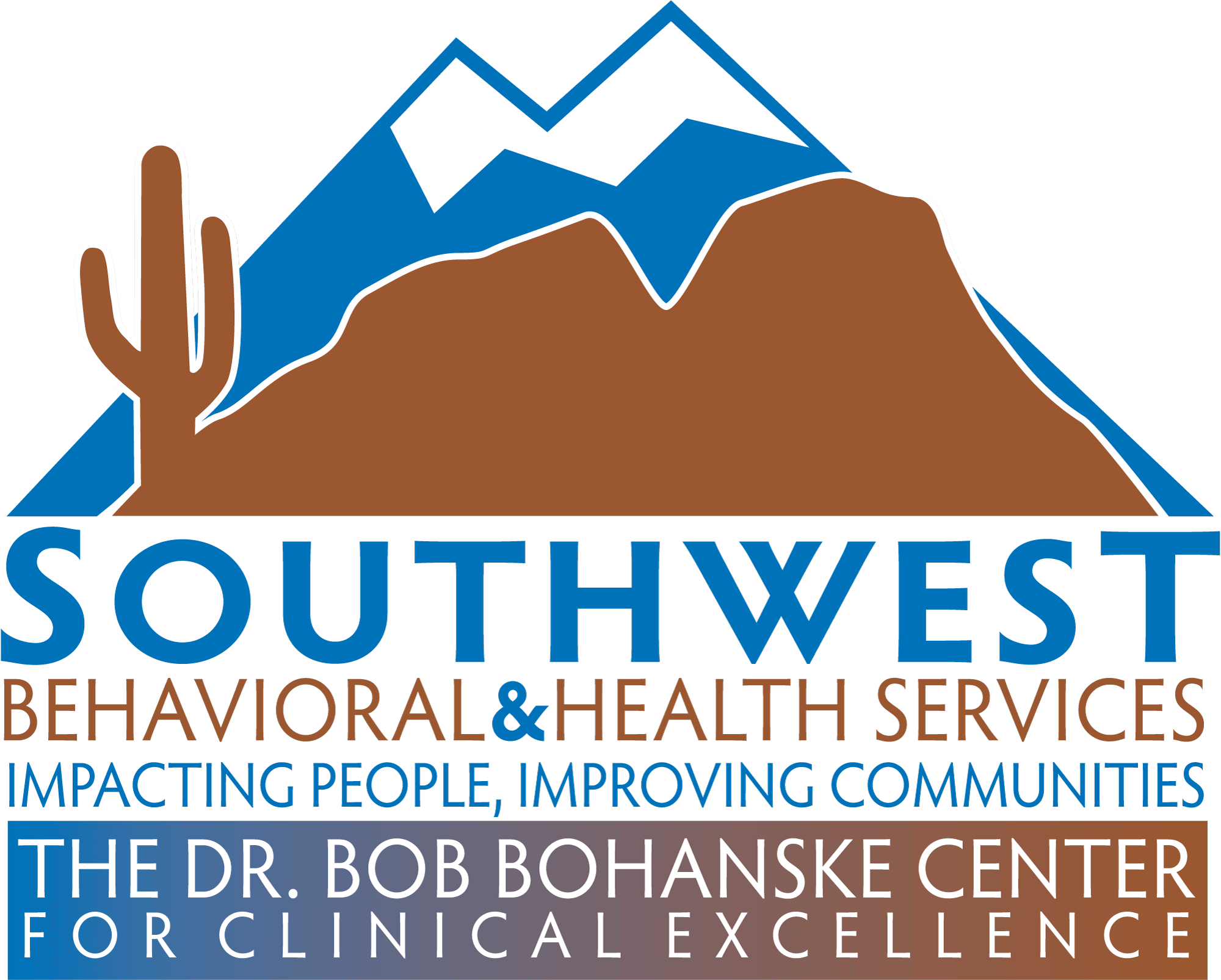Health Service Doctoral Psychology Practicum
Southwest Behavioral & Health Services (SB&H) is committed to training doctoral level psychology students in various stages of their training experience. The health service doctoral psychology practicum program is open to students from Midwestern University-Glendale campus, Arizona State University, and the Psy.D. and Ph.D. programs at Northern Arizona University. Students interested in completing a practicum with SB&H should contact their Training Director at their school. The training year consists of 18-20 hours per week for 12 months and encompasses on-site/in-person training, group and individual supervision, and didactic training experiences.
Practicum Positions
- Community Living Program: The Community Living program offers the opportunity for students to learn how to assist adults with behavioral health interventions in a community living setting in the greater Phoenix area. A key component of this placement is assisting adults with community integration and resolving behavioral issues so that individuals may to gain greater community independence. Services are designed to build upon an individual's strengths, and provide community supports. Students will gain proficiency in working with voluntary and court ordered adults, addressing substance abuse issues, assessing and treating a variety of psychiatric symptoms, and navigating public health systems within Maricopa County to increase client supports and resources. As part of a multidisciplinary team, students engage in coordination of care, client advocacy, treatment planning and programming with an integrative approach. Students conduct intake assessments, provide individual counseling, facilitate groups, and participate in community-based activities. Services are delivered in-person at our community living sites.
- Community Recovery Unit (CRU): The CRU 1 and CRU 2 are 24-hour, Level One, secured facilities located in Phoenix. Persons admitted to the CRU programs are typically considered a danger to self or others, are unable to function in the community and may be under court ordered treatment. The CRU students provide behavioral health interventions for individuals experiencing a behavioral health crisis who require a structured, non-hospital setting. Services are designed to build upon the client’s strengths while working to minimize escalation of behaviors that will lead to a more restrictive setting. At the CRU, students are part of a multidisciplinary team consisting of prescribers, nurses, and behavioral health technicians. Students will gain proficiency in working with individuals as they work to resolve mental health crises. Daily group and individual therapy sessions are facilitated by students. First-year practicum students are generally not placed at the CRU. Services are delivered in-person.
- Erickson Outpatient Clinic (Phoenix) and Flagstaff Outpatient Clinic: The outpatient clinics serve all age ranges of clients from birth through adulthood. The students provide comprehensive behavioral health services including Initial Engagement Sessions, individual counseling, family/couples counseling, and group counseling. Coordinating care with the client’s primary care physician and other providers is essential and assists the students in becoming adept at an integrated model of care. The student works as part of a treatment team that includes the program director, case managers, clinicians, family coaches, and prescribers. Services are delivered both in-person and via telehealth from the clinic.
- School and Community Based Counseling Services: The School and Community-Based Counseling Services program provides comprehensive behavioral health services to youth and their families in school and community settings in the greater Phoenix area. These services span a continuum of care ranging from prevention services through individualized behavioral health interventions. All behavioral health services are developed in collaboration with the youth and family and are created to be flexible and adjustable as the youth and family progress and grow. The practicum student is responsible for communicating with families and school staff to help identify those children who do have counseling needs. The practicum student works collaboratively with school staff and families to provide not only individual, group, and family counseling, but helps identify supports needing to be developed and implemented in the home and school environment to help children reach their potential. As part the Child and Family Team (CFT) process, the practicum student meets with identified members on the child’s clinical team to assess and monitor goals on a quarterly basis that drive the overall need for development. Services are delivered in-person.
Supervision
Supervision is integral to professional development. The practicum students receive multiple forms of supervision and training during their practicum. Psychologists associated with the Training Institute and licensed to practice independently will provide weekly individual supervision and group supervision (Friday Colloquium meetings). During individual supervision, the student and the supervisor will review cases, treatment planning, intervention strategies, and other relevant issues. The supervisor will also review the student’s documentation of cases, and if necessary, advise the student on appropriate conduct.
For more information about the SB&H Doctoral Practicum Training Program, please contact Chief Psychologist, Dr. Lynette Livesay: DoctoralTrainingProgram@sbhservices.org.













